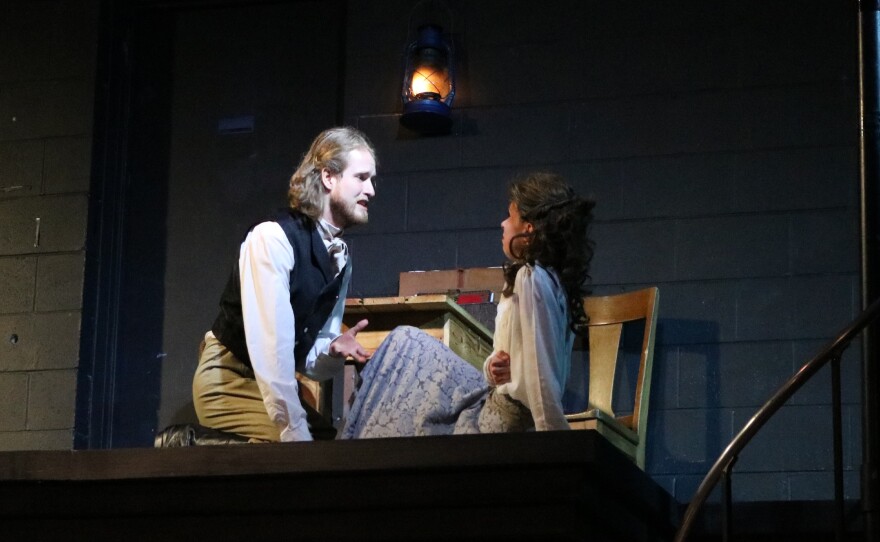Shakespeare’s “Measure for Measure” has long been considered one of the Bard of Avon’s “problem plays”: It is neither a comedy nor a drama, and it touches on some especially contentious topics. Written in the early 1600s, the play depicts sexual assault and harassment, and it poses a particular set of challenges for directors and actors staging the production today: How can a modern version provide new insight into the conversation around consent? And what exactly was Shakespeare trying to say about sexual assault?
Rebecca Blum tackled these questions head-on when she took the helm as director of Raleigh Little Theatre’s staging of the production. Blum reworked scenes and characters as well as hired an intimacy director to inform how actors approached the production.
Actors have traditionally been asked to work it out among themselves and that leaves the actors in a vulnerable place. So what we've done as intimacy directors is adhere to pillars of staging: context, communication, consent. We have the agency to say: "No, but."-Cara Rawlings
Host Frank Stasio talks with Blum, and actors Rosemary Richards and Wade Newhouse. Intimacy director Cara Rawlings joins the conversation to talk about working with the production and her belief that intimacy direction can profoundly shift the personal and professional dynamics of the theater world. “Measure for Measure” is on stage from Jan. 11-27 at the Gaddy-Goodwin Teaching Theatre in Raleigh.
Hear more about Blum's vision for the play in this podcast: https://anchor.fm/rltpodcast




